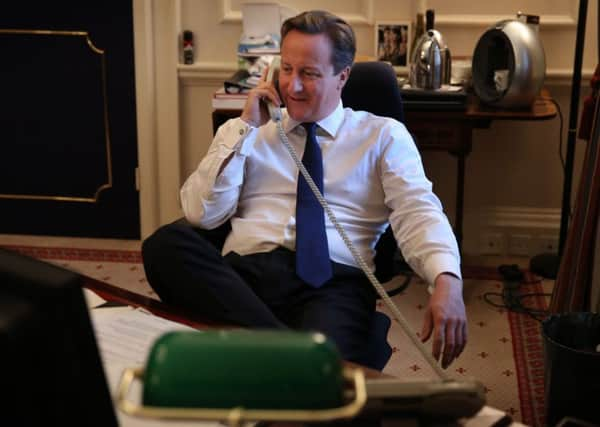EU27 feel their flexibility is repaid with rudeness


The fact is that for the EU, when Boris Johnson and David Davis were appointed to government in 2016, it very quickly became clear that No Deal was a real possibility, since both were visibly unserious about negotiating.
Davis said repeatedly (and continues to say) that it is fine not to negotiate with Commission, because big EU member states will always cave at the last moment. (There is little historical evidence to support this.) And the rest of Europe took note when he said this.
Advertisement
Hide AdAdvertisement
Hide AdJohnson’s repeated rudeness to and about Europeans, for which he appeared to have licence from his boss, further diminished confidence in the UK as a serious negotiating partner.


The EU27 did not (and do not) want a No Deal outcome, but accepted early on that it must necessarily be factored into forward planning, because it was clearly a real if undesirable potential outcome due to British lack of seriousness in negotiations.
True, the UK government never talked up No Deal in negotiations, let alone make it any kind of threat, but this was wise; the EU was well aware of No Deal prospect but also needed to know that UK negotiators were serious about avoiding it, otherwise why bother talking to them at all?
As time went on and Robbins/May took charge, perceptions of UK seriousness improved, but it was late coming (reminder – UK decided its negotiating position in July 2018, A YEAR AFTER negotiations started in 2017; the EU decided a year before).
Advertisement
Hide AdAdvertisement
Hide AdHowever. Leavers do have a point, and Remainers are wrong, about the unhelpful effect of repeated Parliamentary votes rejecting No Deal (in absence of positive vote for current proposal, or for something else).
As @DavidAllenGreen likes to remind us, the UK leaves EU with or without a deal on March 29, whether or not it is ready, no matter how many time Commons rejects No Deal in the meantime, unless Parliament votes for something else.
And if that’s a change of departure date, it needs EU27 agreement, and see below for my reservations about how easy that would be.
For the EU27 (and I suspect for UK and international business actors) it would be much more helpful to see UK Parliament vote for something. Repeated rejections of various options add to perception of a UK system unable to make any positive choices.
Advertisement
Hide AdAdvertisement
Hide AdThe EU27 in general wants decent solution for Brexit, but goodwill towards UK has been pretty much used up.
This did not happen solely on May’s watch. Cameron calling the referendum, losing it and then resigning his PM-ship when it was lost is still seen (fairly or unfairly) as incomprehensible lack of leadership by the EU27.
They feel UK casually discarded significant EU efforts that had gone into negotiating Cameron’s deal.
May got a special EU summit called to approve her deal, and then was unable to carry her own party, and finally reneged on it by supporting the Brady amendment.
Advertisement
Hide AdAdvertisement
Hide AdThe EU27 were collectively unimpressed, and won’t invest more energy than absolutely necessary into finding new answers.
On the backstop, Ireland completely outmanoeuvred the UK early on; while Boris was making rude remarks about foreigners, the Irish were busy convincing rest of EU that protecting the openness of the Irish border from unreliable Brits is a vital EU27 interest. Not without reason.
UK internal concerns on the backstop, which emerged 12 months after UK government agreed to it, are therefore perceived as looking for ways to wriggle out of commitments on Ireland, either now or in a few years time.
The EU27 feel they leaned a lot towards the UK on the backstop and (as with Cameron’s negotiations leading to the referendum outcome) now that flexibility is being repaid with rudeness and hostility.
Advertisement
Hide AdAdvertisement
Hide AdFrom an EU27 perspective, a good close future relationship with the UK is very desirable, but the UK needs first to demonstrate reliability on commitments on payments, citizens’ rights and the Irish border, all three of which look shaky just now.
MPs (and the UK government) should concentrate on how to encourage the EU27 to invest effort in negotiating with the UK for another couple of months, if that proves necessary.
The mood in Brussels now is that despite best efforts, a No Deal outcome is most likely outcome; in that case, why wait?
• This article was compiled from a thread of comments made on Twitter by electoral expert Nicholas Whyte (@nwbrux). He is senior director, global solutions at APCO Worldwide’s Brussels office, and is a visiting professor at the Faculty of Social Science, Ulster University.